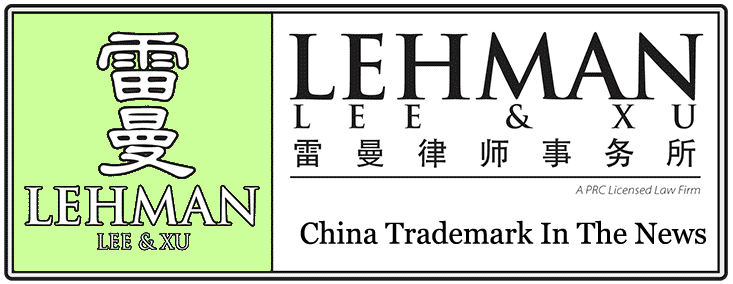
 |
|
LEHMAN, LEE & XU
|
|
China Trademark In The News
|
|
November 2011
|
The China Law News keeps you on top of business, economic and political events in the China. |
In the News |
Apple hits out at caf¨¦ over logo |
Tech giant Apple has accused a German caf¨¦ of trademark infringement after the business commissioned a logo of a red apple, providing start-ups with a warning over their logo choice
|
Alliance to boost brands in international markets |
Dozens of leading private domestic companies have formed a business alliance to helppromote top Chinese brands on the global market. Web link: http://www.chinadaily.com.cn/usa/business/2011-11/02/content_14023962.htm |
China to form national office for IPR fight |
BEIJING - The central government is to establish an office to facilitate the crackdown on infringement of intellectual property rights (IPR) and counterfeit products, the State Council said on Wednesday. Web link: http://usa.chinadaily.com.cn/china/2011-11/10/content_14068384.htm
|
China Law News |
CONTENTS_______________________________________________________________________
China to adopt tougher rules on organ donorsChina Daily China moves to beef up lending to small firmsBEIJING - China has implemented a slew of measures to guide banks to loan more to small and micro-sized enterprises, and 27.9 percent of all outstanding loans by September went to those companies, the country's banking regulator said Monday. Private lending may get its official chancePRIVATE lenders may soon come out from the gray zone as China for first time will legalize private lending to increase financial support for the agriculture sector and smaller enterprises, a central bank official said yesterday.
|
|
|
|
|